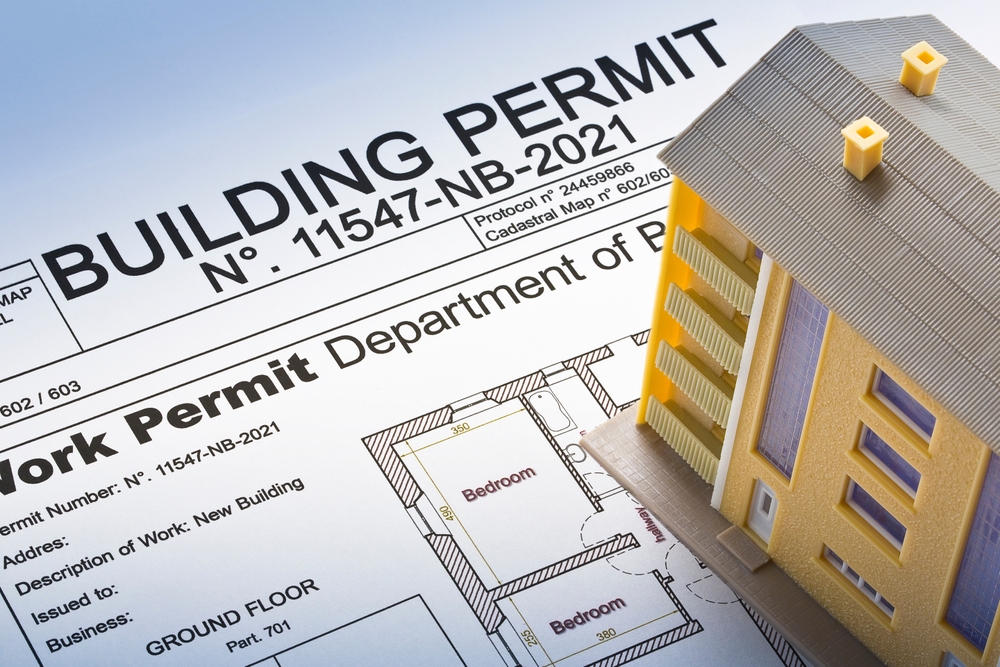What is a Building Permit?

When engaging in any construction or significant renovation work, after coming to terms on a written contract, the next crucial step is obtaining a building permit. This legal document, provided by local city county governments, or other local governing authority ensures that the proposed work complies with building codes, zoning laws, and other regulations. To handle this essential process efficiently and ensure your project adheres to all legal requirements, partner with Grzymala Law Offices.
What is a Building Permit?
A building permit is official approval issued by a local government agency that allows you to proceed with a construction or remodeling project on your property. It is required for new construction projects, major renovations, roof work, structural changes, and sometimes for significant electrical or plumbing work, among other scopes of work. The purpose of the permit is to ensure that the project complies with local zoning regulations, building codes, and safety standards. Here are some examples of scenarios when a building permit is required:
- New Building Construction: Whether you are constructing a new home, office building, or commercial facility, a building permit is mandatory before the commencement of building activities.
- Additions: Adding new rooms to an existing building, such as a new bedroom, garage, or even a sunroom, typically requires a building permit to ensure the new structures are safe and appropriately integrated into the existing building.
- Major Renovations: Significant modifications that alter the footprint of a building or its use, such as converting a residential property into a commercial property, require a building permit.
- Structural Changes: Any project that involves altering the support system of a building, such as removing or altering load-bearing walls, requires a permit.
- Electrical and Plumbing Work: Major installations or changes to the electrical or plumbing systems often need a permit, particularly when new wiring or plumbing is being added to a building or if the current systems are out-dated and need to be brought up to code.
Obtaining a building permit involves submitting detailed plans for the project, which are reviewed by local authorities to ensure they meet all necessary codes and regulations. Once approved, the permit must be kept on the construction site and is subject to review by inspectors throughout the project duration.
Why Building Permits are Required
Building permits are a fundamental requirement for several reasons:
- Safety: They ensure that the construction project adheres to safety standards, which helps in preventing accidents and injuries.
- Regulation Compliance: Permits guarantee that all constructions meet the local standards for land use and construction.
- Value Preservation: Compliance with the law helps maintain property value and ensures that any future sale of the property is not jeopardized by legal issues related to unauthorized constructions.
Obtaining a building permit involves submitting detailed plans and specifications of the proposed construction to the local authority. If approved, it often leads to several inspections during and after construction to ensure compliance with the submitted plans and applicable laws.
Inspections Prompted by Building Permits
Once a permit is issued, the local municipality will conduct inspections to ensure ongoing compliance with the building codes and the safety of the construction. These inspections are critical as they:
- Verify the quality and alignment of the construction work with the safety standards.
- Ensure that the electrical, plumbing, and structural work complies with the building codes.
Penalties for Non-Compliance
Operating without a building permit can lead to substantial fines, which may accrue daily, significantly increasing the financial burden. Legal actions can include court appearances and potential orders to halt or even dismantle any unauthorized work, adding further costs and delays.
In severe cases, non-compliance may result in criminal charges, particularly if the violation leads to safety issues. Additionally, unauthorized construction can complicate selling the property and might not be covered by insurance, leading to major financial and legal repercussions. For guidance on ensuring compliance with building permit regulations, our Illinois construction attorney today.
Contractor Responsibility
Contractors must ensure that a building permit is in place before starting any construction work even if the owner does not wish to request a building permit. The contract should clearly state which party is required to obtain the permit, Initiating a project without the necessary permits is a violation of regulatory laws and can expose both the contractor and the property owner to severe legal and financial consequences. The contractor is still responsible if the owner does not obtain a permit, This responsibility helps safeguard against potential liability and supports adherence to local building codes and safety standards. To avoid these risks and ensure legal compliance, contractors should verify permit status before beginning any work.
Warnings and Recommendations
To mitigate risks associated with non-compliance, it’s crucial to ensure that all construction activities, from new builds to renovations, adhere strictly to relevant legal standards. This is especially important under the Illinois Home Repair and Remodeling Act and the Illinois Mechanics Lien Act. These laws provide essential protections for homeowners and construction professionals, specifying regulations that help avoid legal complications.
Grzymala Law Offices, P.C., with over 45 years of combined experience in the construction industry, specializes in construction law, mechanic’s liens, collection, and commercial litigation. Our firm is dedicated to assisting businesses throughout the Chicagoland area and surrounding counties in navigating these legal requirements effectively. Understanding and implementing the intricacies of mechanics liens is essential for protecting your projects and business legally. For legal support and to ensure your construction projects are compliant, consult with Grzymala Law Offices today.
